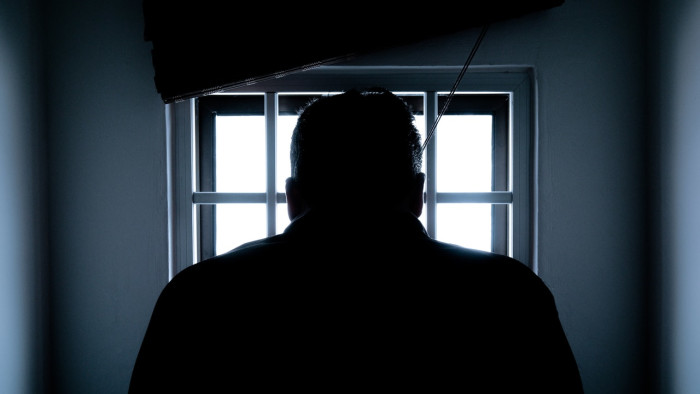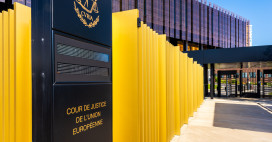
This post is part of the “Security and Human Rights” series, where we highlight violations of and threats to human rights and justice posed by counter-terrorism and anti-extremism measures.
The series is implemented by the civil society Working Group on Counter-Terrorism, Anti-Extremism and Human Rights, a part of the Civic Solidarity Platform (CSP), which brings together non-governmental organisations in Europe, Eurasia and the US. This post is written by Veronika Kusyova, External Consultant, for the project “Civil Society Countering Violent Extremism” funded by the European Union and implemented by the Albanian Helsinki Committee. Its contents are the sole responsibility of the author and do not necessarily reflect the views of the European Union or Fair Trials.
The year 2012 took the entire Western Balkan region by surprise: suddenly, people from the Balkans started to leave for Syria and Iraq to join terrorist organisations in their fight to build an Islamic caliphate. With international assistance, Western Balkan countries have managed to tackle the number of people leaving. But, have they really succeeded in countering radicalisation and violent extremism, the root cause of the problem?
Since 2012, Albania has passed various laws and even a national strategy on countering violent extremism. It has indicted influential figures, such as recruiters and those threatening to carry out acts that lead to or incite terrorism, be it in Albania or abroad. The number of foreign fighters leaving Albania dropped from around 150 to zero in 2017. Although this may seem like the problem has been solved, the issues surrounding radicalisation and extremism are more complex than the numbers suggest.
For example, a thorough investigation of factors leading to radicalisation and violent extremism should have been done. People did not turn into radicals overnight. Some imams actively worked with communities, inspiring them to leave for a better life in a caliphate. Whilst many of these people have been convicted and imprisoned, there remains questions of what contributing factors allowed this to happen.
One factor is that although Albania may be a small country, its rather poor infrastructure makes it difficult to reach more rural and remote areas. Some of the principal reasons why people find radicalisation and extremism tempting are despair and lack of opportunities. Life in Albania tends to be highly centralised in the capital, Tirana. There are many language schools, sport clubs, extra-curricular activities, and libraries in the capital, yet other cities and towns seem to be lagging behind. Lacking in opportunities, many young people spend a lot of time using technology and social media, leaving them vulnerable to organisations who are now well-versed in using social networks to radicalise young people.
Furthermore, corruption has spread through society to the extent that people openly talk about a ‘price list’ for gaining certain jobs. What kind of prospects does a young Albanian have if they have to bribe their way into a job? There is a similar situation in Kosovo, where organisations like Kosovar Countering Violent Extremism (CVE) are requesting funds for projects as simple as opening libraries, playgrounds, sports clubs, and other places for young people to meaningfully spend their free time.
Deradicalization is also a key issue for those imprisoned on charges of terrorism and incitement to terrorism. Yet what kind of deradicalization programmes are available to those detained on terrorism charges? To my knowledge, none. At the recent ‘Western Balkans Countering Violent Extremism Regional Conference’ Erinda Bllaca from the Albanian Rehabilitation Centre for Trauma and Torture (which has carried out various projects to fight radicalization and extremism among youth and in prisons) highlighted that it is too soon to talk about rehabilitation and reintegration of either prisoners or returning fighters because deradicalization has not taken place yet. But prison should be a place of rehabilitation, where detainees are given the tools to be able to reintegrate into society once they leave.
The Western Balkans has a long tradition – spanning centuries – of different religions living alongside each other, yet current polarisation trends seem to be disrupting this co-existence in Albania. While everybody’s eyes seem to be set exclusively on radical Islam, this risks overlooking other forms of extremism that also exist. For instance, the library in Durres, the second largest city in Albania, is a tiny house with a swastika on its doors. Religious tolerance should not be taken as a given, it has to be actively cultivated as a precious heritage that all Albanians have.
The Working Group on Counter-Terrorism, Anti-Extremism and Human Rights is jointly coordinated by Fair Trials and the Moscow-based SOVA Center for Information and Analysis. Other members of the Working Group include: Albanian Helsinki Committee, ARTICLE 19, DRA, Human Rights First, Netherlands Helsinki Committee, and Serbian Helsinki Committee.


